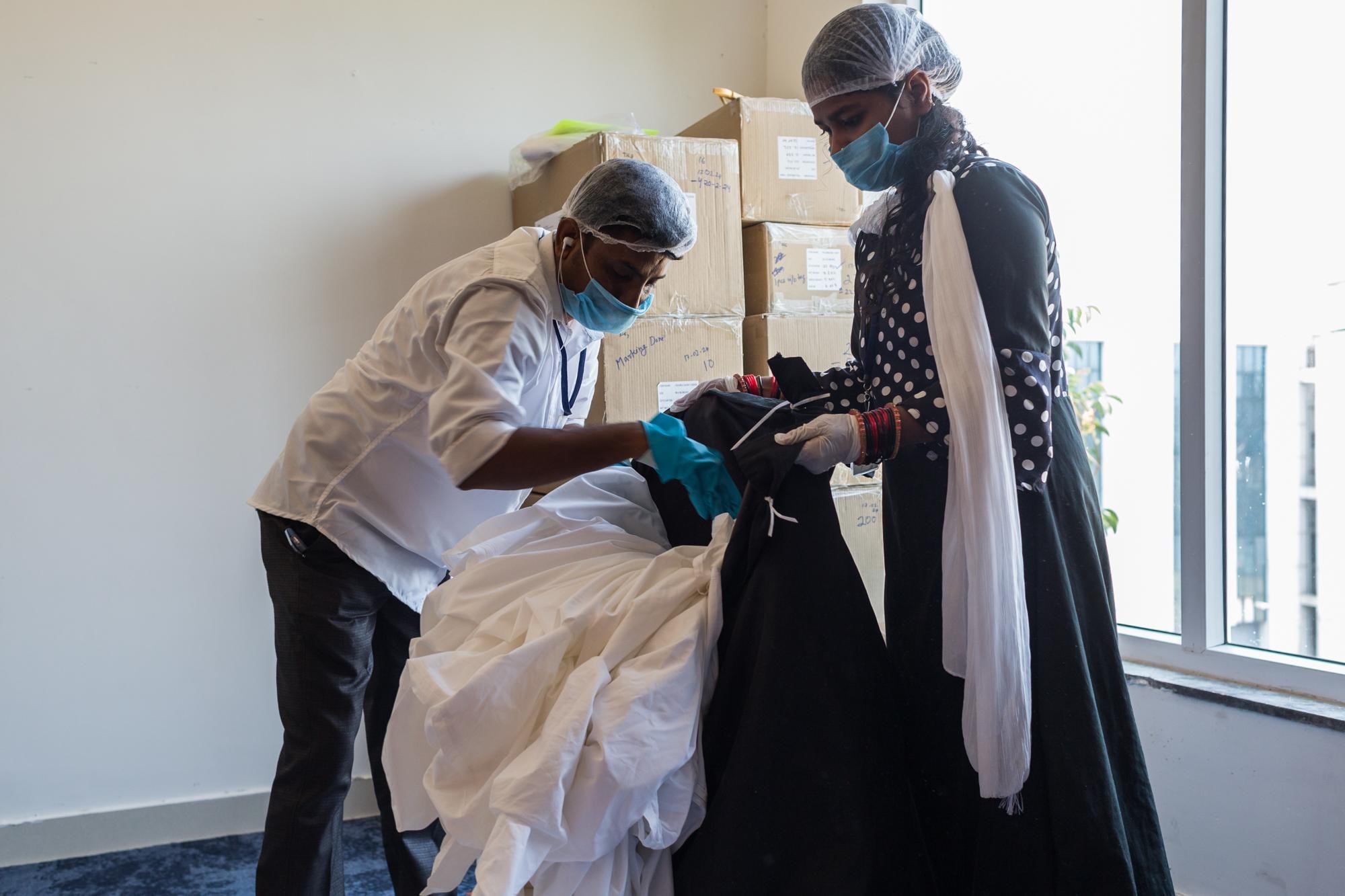SECOND SPIN CIRCULAR TEXTILE VENTURE INSTITUTIONAL LINEN WASTE INDIA TEXTILE WASTE UPCYCLING RECYCLING RETEX END-OF-LIFE TEXTILES LANDFILLS BENGALURU HOTELS HOSPITALS SPAS USD 1.2 BILLION ASCOTT INDIA FLAGSHIP PROPERTIES CIRCULAR SUPPLY C NATIONAL
BENGALURU, KARNATAKA, INDIA
By IFAB MEDIA - NEWS BUREAU - July 2, 2025 | 444 5 minutes read
A circular textile venture tackling institutional linen waste, is quietly gaining momentum across India.
Second Spin, a venture focused to turn institutional textile waste into value and help hotels close the loop on discarded textiles through a structured model that prioritizes operational ease, traceability, and environmental responsibility.
The venture, formerly known as Retex, has sharpened its mission: to keep end-of-life linens out of landfills and in circulation through an innovative upcycling and recycling ecosystem.
India generates over 220 tonnes of textile waste per day in big cities like Bengaluru alone. A large share of that — nearly 22% — comes from institutions such as hotels, hospitals, and spas. Until recently, most of these textiles were downcycled, landfilled or incinerated, contributing to environmental degradation and squandering valuable fiber worth an estimated USD 1.2 billion a year.
Second Spin recently signed a chain-level agreement with Ascott India, beginning with seven of their flagship properties and more in the pipeline.
Second Spin offers a scalable solution, a circular supply chain that collects, sorts, and transforms used linens into high-quality recycled materials. A model that works for institutions of all kinds – hotels, restaurants, spas, hostels, large chains, or hospitals. By building city-based systems for collection, sorting, and recycling. These are then turned into new products like paper, yarns and fibres and working with industries seeking sustainable solutions to meet ESG mandates and consumer demand.
I’m truly impressed by the commitment partners like Ascott India have shown toward sustainability. Even while prioritising guest comfort, they clearly understand the responsibility and influence they hold — and they are embracing that with real intent and enthusiasm” said Radhika Datta, Co-Founder, Second Spin.
Ascott India Partnership: A First of Its Kind
With growing demand for sustainable travel, Ascott India has already adopted several green practices — from an 11-stage water recycling system to reducing plastic use (especially single-use plastics), switching to tree-free paper, and opting for wooden or digital key cards. These efforts make it a strong choice for eco-conscious travelers.
Now, through a chain-level partnership with Second Spin, Ascott India is also closing the loop on its end-of-use textiles. This collaboration brings circularity into their operations, ensuring that discarded linens are recovered and repurposed — not wasted.
Being on the ground, we see the direct impact of our operational choices every day. Through our partnership with Second Spin, we’re not only reducing textile waste, but also creating a culture of responsibility among our staff and guests. Initiatives like this go beyond checklists — they become part of our property’s identity. It’s fulfilling to see sustainability become a shared value that our team takes pride in, and our guests increasingly appreciate it,” said, The General Manager, Citadines OMR Chennai, Prashanth Rajkumar.
At Citadines OMR, Chennai (COMR), Second Spin has already diverted and recovered 2 tonnes of discarded textiles — giving Textile waste a second life.
“At Ascott, sustainability is not just a goal–it’s a responsibility we carry across every level of operation. Our partnership with Second Spin enables us to extend the life cycle of our textiles meaningfully, while also contributing to a more circular economy. This collaboration aligns seamlessly with our commitment to reducing waste, driving ESG performance, and embedding environmental accountability into the hospitality industry.” added, Prasanna Raghavan, Head of Finance & Sustainability at Ascott India.
Since launching its renewed model, Second Spin has diverted over 45000 kgs of used hotel linens away from landfill — turning waste into new products such as yarns, felt, and even paper with over 30 hotel partners. The rebrand signals a tighter focus on this B2B institutional market and a shift away from earlier rental models.
Second Spin is enabling a new kind of textile economy: circular, inclusive, and ready to serve at scale.









